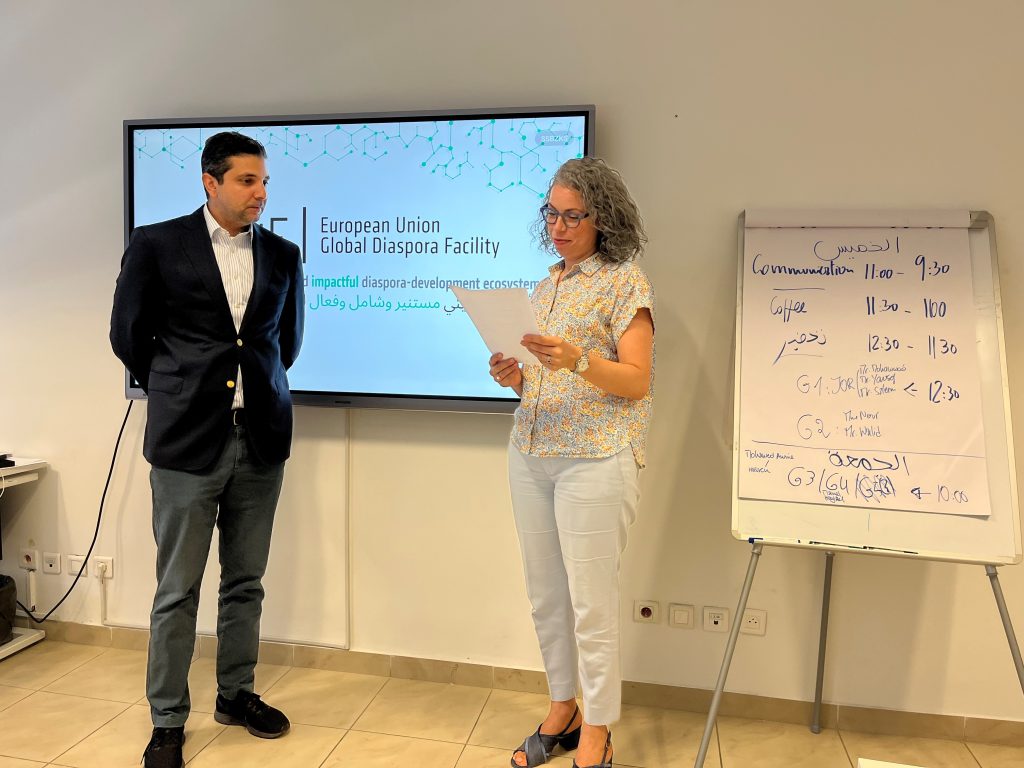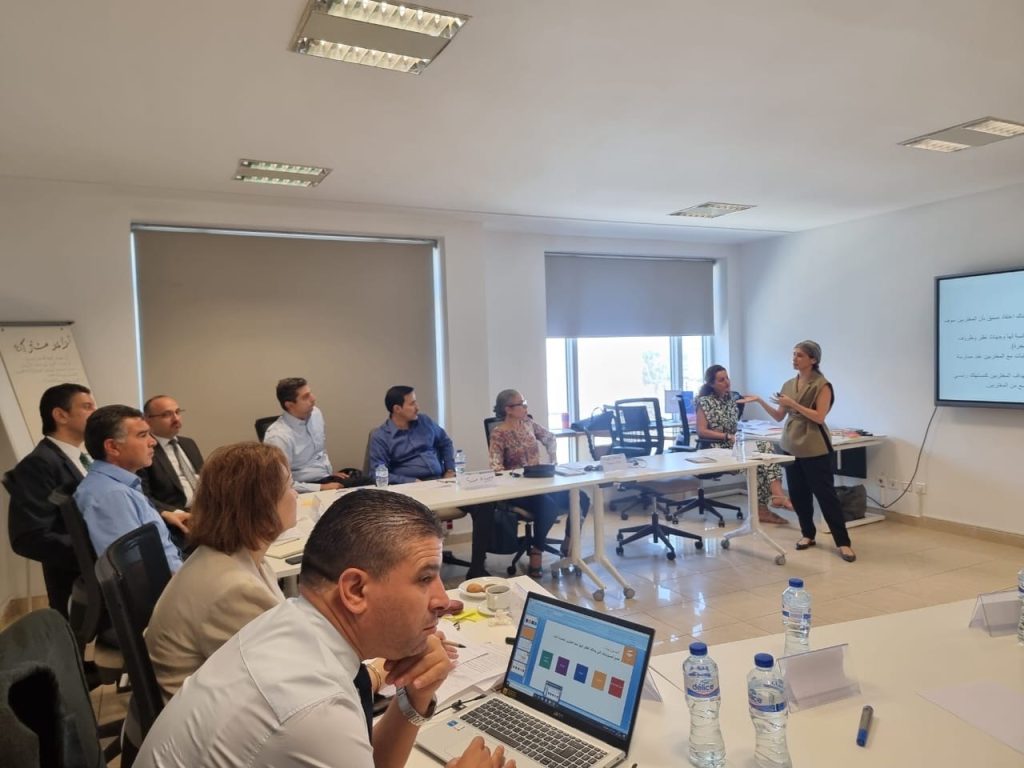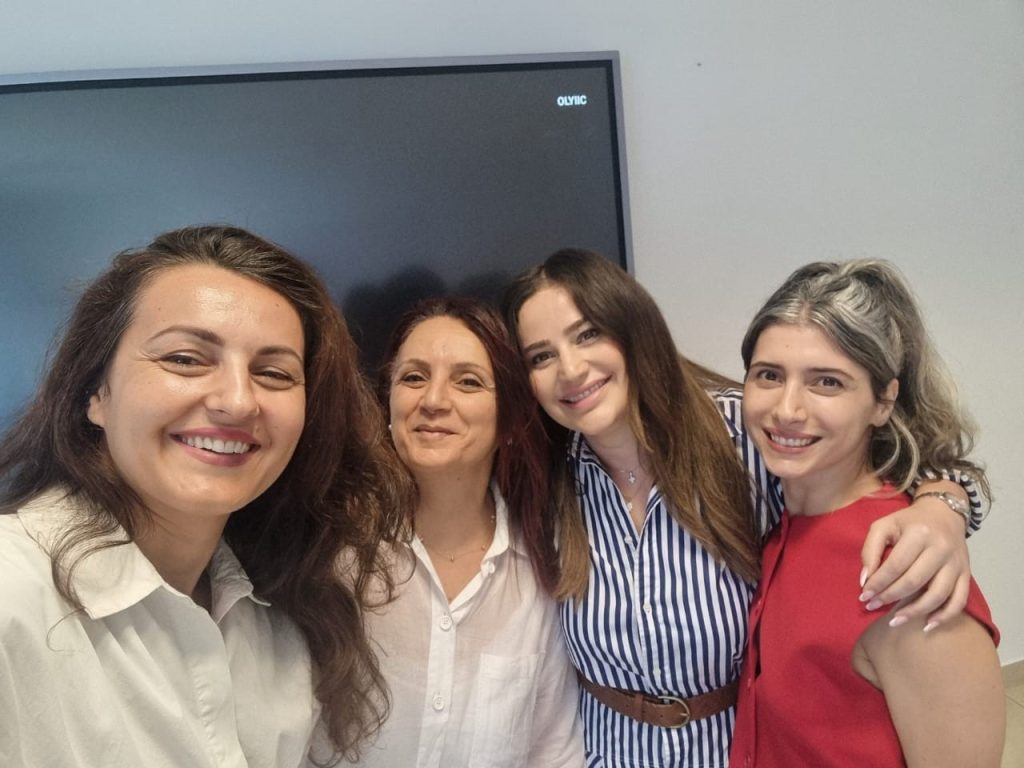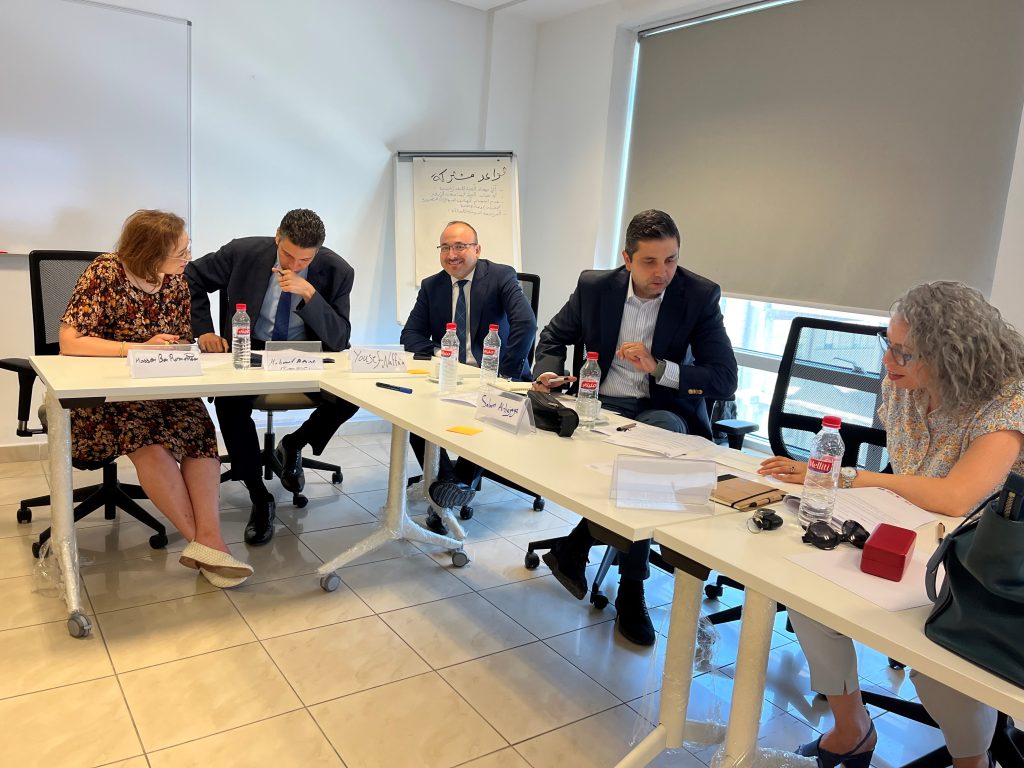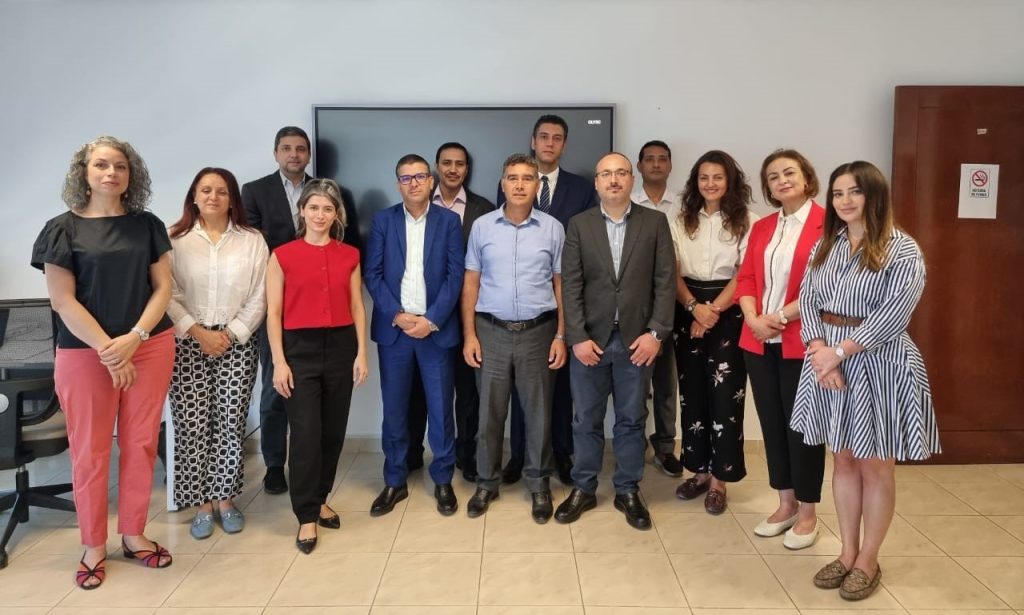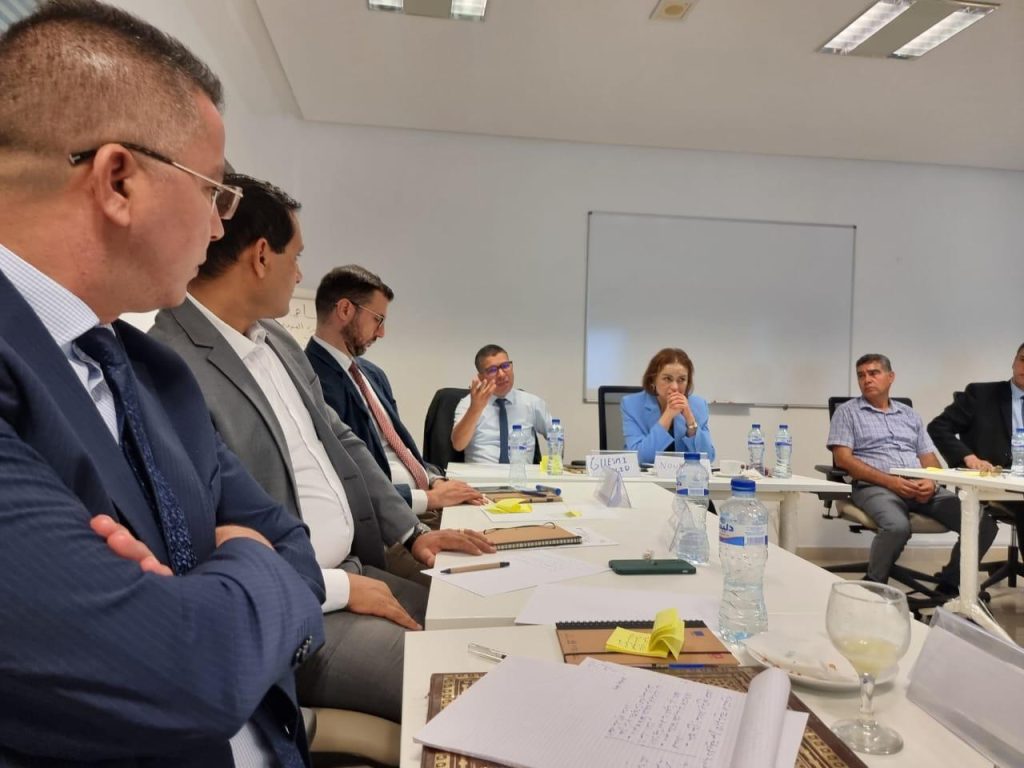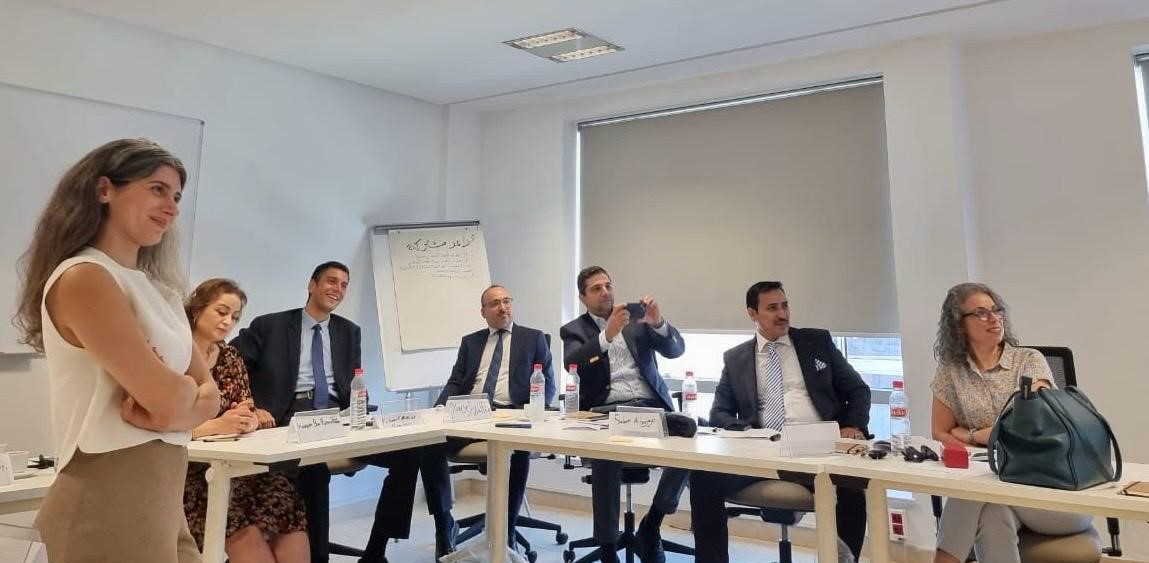
Between July 15-19, 2024, EUDiF delivered the training “Economic diplomacy and the role of diaspora”, hosted in Tunisia under the project ProGres Migration Tunisia and in partnership with The Training Institute on Migration Capacity Partnership for the Mediterranean (MCP Med TI). EUDiF’s Hala Tarabay, co-author of the course, shares insights into the course’s development and delivery.
With its steadfast conviction of the relevance of diaspora in economic growth, EUDiF, in partnership with The Training Institute on Migration Capacity Partnership for the Mediterranean (MCP Med TI) developed the course “Economic diplomacy and the role of diaspora”at the end of 2023. With four modules, the course aims to equip government employees, namely consular and diplomatic staff, with the knowledge and skills to effectively engage with the diaspora for economic development.
What is economic diplomacy?
Economic diplomacy is the strategic use of government resources and policies to promote and protect a country’s economic interests globally. It involves not only traditional methods such as trade agreements and international negotiations, but also the mobilisation of diaspora communities.
Engaging the diaspora can significantly accelerate economic diplomacy by leveraging their connections, knowledge, and financial resources to enhance bilateral trade, tourism, knowledge exchange and business opportunities. With their contributions, economic diplomacy can achieve broader and more sustainable economic growth.
What role for embassies and consulates?
As the primary representatives of their country abroad, consular and diplomatic staff play an important role in economic diplomacy. They promote their country’s economic interests abroad, facilitate business engagements, and simultaneously support diaspora communities. Their expertise and direct interactions with local and international stakeholders make them indispensable in executing their country’s economic strategy, as well as being the direct interface with the diaspora. Enhancing their understanding on how to integrate diaspora engagement in economic diplomacy therefore holds a lot of potential.
Course content
The new EUDiF-Training Institute course covers a broad range of topics essential for diaspora engagement and economic diplomacy. Over five days, participants delve into themes such as diaspora institutions and policies, trade, investment, heritage tourism, knowledge transfer, communication and diaspora profiling.
The course was developed by the EUDiF team, drawing on the project’s research, dialogue and capacity development projects with public institutions and diaspora. It has been designed as an entry-level course into these main areas of economic activity, which can be complemented by in-depth training on each, according to national priorities.
The programme is conducted in person, ensuring a highly interactive and engaging learning environment. It is designed specifically for adult learners with activities such as simulations and group discussions that prioritise peer exchange and collaboration. The course incorporates best practices with over 30 real-world cases.
From 15-19 July 2024, nine government officials from Tunisia and Jordan, primarily from Ministries of Foreign Affairs (MFAs), completed the course. On average, they rated the applicability of the training 8.5 out of 10, showing the usefulness of the course, and remarking that the hands-on approach ensures attendees gain practical skills and strategies they can immediately apply to their roles.
Trainer’s take
Reflecting on my personal journey from diplomatic staff to diaspora engagement expert, I am proud of the dynamic and adaptable training we have developed. We tailor the delivery to the group in question, explore a wide variety of real-world examples and encourage reflection on how to apply the knowledge directly in the participant’s daily work. I wish I had had access to such a course during my diplomatic career. It’s more than just a series of lectures—it’s an eye-opener that unveils diverse ways to leverage the diaspora which consular and diplomatic staff might not have previously considered or prioritised.
If you are interested in learning more about our training sessions or wish to participate in future programmes, please contact us at eu-diaspora@icmpd.org. Keep an eye out for our next Call for Applications in August 2024, where public institutions can request to participate in such trainings and many other different forms of capacity development.
